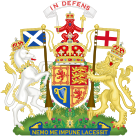
Smoking bans, or smoke-free laws, are public policies, including criminal laws and occupational safety and health regulations, that prohibit tobacco smoking in certain spaces. The spaces most commonly affected by smoking bans are indoor workplaces and buildings open to the public such as restaurants, bars, office buildings, schools, retail stores, hospitals, libraries, transport facilities, and government buildings, in addition to public transport vehicles such as aircraft, buses, watercraft, and trains. However, laws may also prohibit smoking in outdoor areas such as parks, beaches, pedestrian plazas, college and hospital campuses, and within a certain distance from the entrance to a building, and in some cases, private vehicles and multi-unit residences.

Candy cigarettes are a candy introduced in the late 19th century made out of chalky sugar, bubblegum or chocolate, wrapped in paper and packaged and branded so as to resemble cigarettes. Some products contain powdered sugar hidden in the wrapper, allowing the user to blow into the cigarette and produce a cloud of sugar that imitates smoke, which comes out of the other end.
Action on Smoking and Health (ASH) is the name of a number of autonomous pressure groups (charities) in the anglosphere that seek to publicize the risks associated with tobacco smoking and campaign for greater restrictions on use and on cigarette and tobacco sales.

The Smoking, Health and Social Care (Scotland) Act 2005 is an Act of the Scottish Parliament passed in 2005, after being introduced by Scottish Executive Health minister Andy Kerr.

Because of the damage to health due to smoking in the United Kingdom it may be the first country to ban sales of cigarettes to people born after 2008.

The smoking age is the minimum legal age required to purchase or use tobacco or cannabis products. Most countries have laws that forbid sale of tobacco products to persons younger than certain ages, usually the age of majority.
Fire-safe cigarettes, abbreviated "FSC", also known as lower ignition propensity (LIP), reduced fire risk (RFR), self-extinguishing, fire-safe or reduced ignition propensity (RIP) cigarettes, are cigarettes that are designed to extinguish more quickly than standard cigarettes if ignored, with the intention of preventing accidental fires. In the United States, "FSC" above the barcode signifies that the cigarettes sold are fire standards compliant (FSC).

Ventilated cigarettes are considered to have a milder flavor than regular cigarettes. These cigarette brands may be listed as having lower levels of tar ("low-tar"), nicotine, or other chemicals as "inhaled" by a "smoking machine". However, the scientific evidence is that switching from regular to light or low-tar cigarettes does not reduce the health risks of smoking or lower the smoker's exposure to the nicotine, tar, and carcinogens present in cigarette smoke.

The use of tobacco for smoking in New Zealand has been subjected to government regulation for a number of decades. On 10 December 2004, New Zealand became the third country in the world to make all indoor workplaces including bars and restaurants smoke-free. The smoking rate in New Zealand was about 8% as of 2023 when the new government planned to eliminate the nation's smoking ban to fund tax cuts.

Tobacco politics refers to the politics surrounding the use and distribution of tobacco.

The Family Smoking Prevention and Tobacco Control Act, is a federal statute in the United States that was signed into law by President Barack Obama on June 22, 2009. The Act gives the Food and Drug Administration the power to regulate the tobacco industry. A signature element of the law imposes new warnings and labels on tobacco packaging and their advertisements, with the goal of discouraging minors and young adults from smoking. The Act also bans flavored cigarettes, places limits on the advertising of tobacco products to minors and requires tobacco companies to seek FDA approval for new tobacco products.

SmokinginCanada is banned in indoor public spaces, public transit facilities and workplaces, by all territories and provinces, and by the federal government. As of 2010, legislation banning smoking within each of these jurisdictions is mostly consistent, despite the separate development of legislation by each jurisdiction. Notable variations between the jurisdictions include: whether, and in what circumstances ventilated smoking rooms are permitted; whether, and up to what distance away from a building is smoking banned outside of a building; and, whether smoking is banned in private vehicles occupied by children.

Smoking in the United Kingdom involves the consumption of combustible cigarettes and other forms of tobacco in the United Kingdom, as well as the history of the tobacco industry, together with government regulation and medical issues.

Regulation of electronic cigarettes varies across countries and states, ranging from no regulation to banning them entirely. As of 2015, around two thirds of major nations have regulated e-cigarettes in some way.
The scientific community in the United States and Europe are primarily concerned with the possible effect of electronic cigarette use on public health. There is concern among public health experts that e-cigarettes could renormalize smoking, weaken measures to control tobacco, and serve as a gateway for smoking among youth. The public health community is divided over whether to support e-cigarettes, because their safety and efficacy for quitting smoking is unclear. Many in the public health community acknowledge the potential for their quitting smoking and decreasing harm benefits, but there remains a concern over their long-term safety and potential for a new era of users to get addicted to nicotine and then tobacco. There is concern among tobacco control academics and advocates that prevalent universal vaping "will bring its own distinct but as yet unknown health risks in the same way tobacco smoking did, as a result of chronic exposure", among other things.

A vape shop is a retail outlet specializing in the selling of vaping products, though shops selling derived psychoactive cannabis products have increased since the passage of the 2018 Farm Bill. There are also online vape shops. A vape shop offers a range of vaping products. The majority of vape shops do not sell vaping products that are from "Big Tobacco" companies. In 2013, online search engine searches on vape shops surpassed searches on e-cigarettes. Around a third of all sales of vaping products take place in vape shops. Big Tobacco believes the independent vape market is a threat to their interests.

The Psychoactive Substances Act 2016 is an Act of the Parliament of the United Kingdom intended to restrict the production, sale and supply of a new class of psychoactive substances often referred to as "legal highs". The bill was given Royal Assent on 28 January 2016, and came into force on 26 May 2016 across the entire United Kingdom.

As nicotine is highly addictive, marketing nicotine-containing products is regulated in most jurisdictions. Regulations include bans and regulation of certain types of advertising, and requirements for counter-advertising of facts generally not included in ads. Regulation is circumvented using less-regulated media, such as Facebook, less-regulated nicotine delivery products, such as e-cigarettes, and less-regulated ad types, such as industry ads which claim to discourage nicotine addiction but seem, according to independent studies, to promote teen nicotine use.
Smoking in Australia is restricted in enclosed public places, workplaces, in areas of public transport and near underage events, except new laws in New South Wales that ban smoking within ten metres of children's play spaces.















